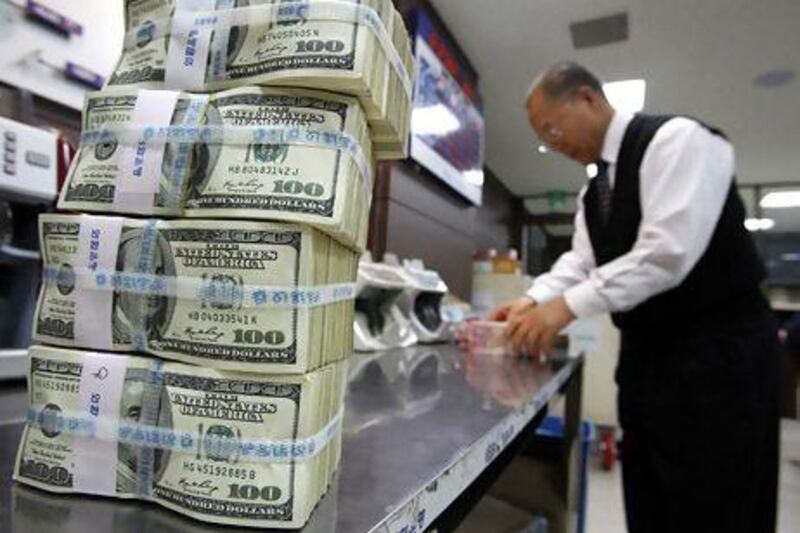For the first time since the start of the global financial crisis, both the US dollar and American stocks are moving upwards, signalling that investors believe the world's biggest economy may be on a sustained growth path.
The dollar index is at its highest level in more than six months and, after the Swedish krona, the greenback is the second-best performer of the G10 currencies so far this year. The rise comes amid Standard & Poor's 500 Index of US shares reaching its highest levels since 2007 last week.
The dual rally is in contrast to the last four years, when the dollar has tended to trade in the opposite direction to equities. Often the dollar has acted as a refuge for investors seeking shelter from volatility in equities caused by the euro-zone crisis and other sticky patches in the global economy. Investors have been tempted back the other way during brighter periods.
Recently that cycle appears to be weakening. "The break has been over the past few months," said Tim Fox, the chief economist at Emirates NBD. "Before that the crisis created a risk-on, risk-off environment."
Mr Fox puts the break in the trend down to the prospects of the US Federal Reserve becoming the first major central bank to turn off the tap on monetary easing, or stimulus. Since 2009, the Fed has intermittently flooded banks with cheap money under its bond-buying scheme, a move that has tended to push the dollar lower. But minutes of the Fed's last meeting last month showed growing debate about scaling back the scheme. "Less quantitative easing in the US is a reason to adjust your portfolio to include the dollar," said Mr Fox.
The dollar and US stocks have gained strength from the same source - signs of gathering momentum in the economy of the United States. The housing market is improving, joblessness has fallen below 8 per cent and household wealth has recovered most of the plunge during the financial crisis.
In contrast, some other major economies are worse off. Parts of the euro zone remain mired in recession, while joblessness in Spain and Greece is above 25 per cent. Japan's economy remains beset by deflation that has eroded profits and wages and curbed spending.
The euro-dollar rate traded at 1.31 on Friday and 95.66 against the yen.
For the GCC, of which five of the six states have their currencies pegged to the dollar, the greenback's surge has its benefits and downsides.
By making imports cheaper, a stronger dollar should help to keep inflation in check. Inflation in the UAE reached 0.4 per cent in January from a year earlier. But it can also harm the GCC's competitiveness by making exports more expensive.
Currency report, b9
Still, some analysts feel the dollar rally will lose steam.
"[It] appears to be little more than a reflection of heightened global macro risks," wrote analysts at Australia and New Zealand Banking Group, in a research note last week. "These same macro risks, however, are likely to see the core central banks retain an easy monetary policy stance and encourage an ongoing rotation out of fixed income into equities and other risky assets."





